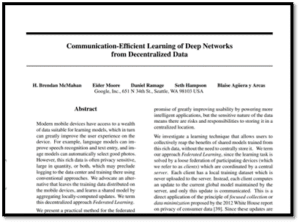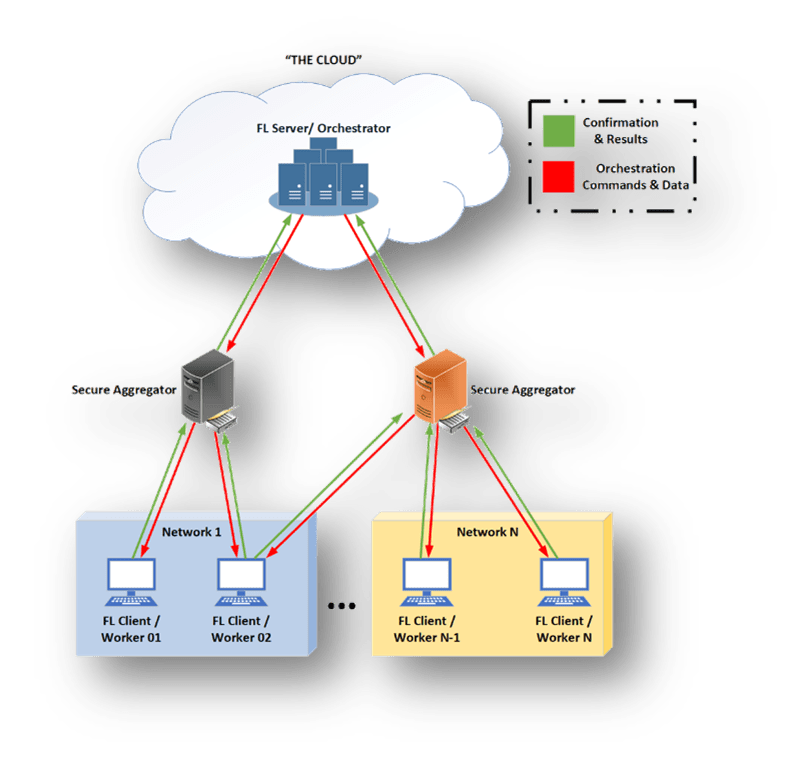
Federated Learning (FL) is defined as a distributed stochastic learning and privacy-preserving methodology which orchestrates, distributes, trains, and aggregates Deep Neural Networks across a large corpus of devices or edge nodes in distributed networks. Federated Learning was first presented by Google Research team in a paper called “Communication-Efficient Learning of Deep Networks from Decentralized Data” in 2016. Since then, research around the subject has been blooming, both in application and optimization
There are different categories of Federated Learning, such as Model-Centric, including (a) Horizontal, (b) Cross-Silo and (c) Vertical Federated Learning, as well as Federated Transfer Learning, and the other category is Data-Centric Federated Learning. FL is also divided into Centralised and Decentralised. In the former, the Federated AI models are aggregated in a central server, while in the latter the aggregation follows multi-node approach. Even though all these FL techniques flourish in the research area, the most commonly utilized in commercial applications is the Centralised approach. This approach works by training models locally on the remote devices and fusing them into a global model containing the shared knowledge of those devices on a central aggregator/server. This server usually possesses great computational resources to accommodate the model aggregation process

Federated Learning takes advantage of a fusion methodology in order to aggregate the AI models coming from the remote nodes. This process merges the weights of the different models in using a predefined scheme, that depends on the application, such as, personalization, deployment, privacy, etc. The most common and widely used one is the Federated Averaging (FedAvg) algorithm.
Today, Federated Learning is considered a State-of-the-Art technique that support intelligent systems following three main axis, namely, Model Optimization, Resource Optimization and Privacy Preservation.
In ELECTRON, Federated Learning will be leveraged to train AI Intrusion Detection models in a decentralised manner. The ELECTRON platform will take advantage of the optimization and the privacy preservation of FL in order to produce high-end Intrusion Detection models, offering advanced and robust cybersecurity identification and protection in the Industrial domain.
